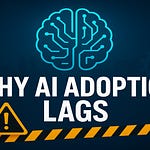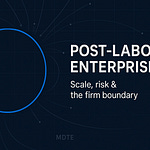Source: https://www.perplexity.ai/search/did-larry-ellison-recently-say-P1B1PQftTx6SdCOHO.eUsw
🎙️ Orwellian Nightmares from Silicon Valley
Larry Ellison, billionaire co-founder of Oracle, recently shared his vision for AI-powered surveillance at an analyst meeting. He suggested using AI to monitor police officers and citizens constantly. As someone with experience in tech infrastructure, this raises serious concerns about privacy and overreach.
🤔 The Billionaire Bubble
I've noticed that billionaires often live in a different world from the rest of us. With private security, islands, and bunkers, they're socially isolated. This can lead to a disconnect from everyday realities and constitutional principles like privacy rights.
💻 When Tech Bros Play Government
There's a tendency in Silicon Valley for successful tech entrepreneurs to believe they can solve any problem, even outside their expertise. Ellison's background is in databases, not public policy or law enforcement. Yet he's proposing sweeping surveillance without considering the legal or ethical implications.
🧠 The Halo Effect and False Authority
We often assume someone successful in one area is an expert in all areas. This "halo effect" can lead to misplaced trust. Ellison may be a tech genius, but that doesn't qualify him to reshape society. Even in cloud computing, Oracle only has 2-3% market share despite Ellison's reputation.
🎭 The Expectation Trap
I've fallen into this trap myself. When people view you as an expert, there's pressure to have answers for everything. It's important to recognize and communicate the limits of our expertise. I'm trying to be better about this in my own work.
🚫 Just Because We Can, Doesn't Mean We Should
Technology gives us incredible capabilities, but we need ethical constraints. Constant surveillance might be technically feasible, but it goes against core values of privacy and freedom. As tech leaders, we have a responsibility to consider the broader implications of our ideas.











